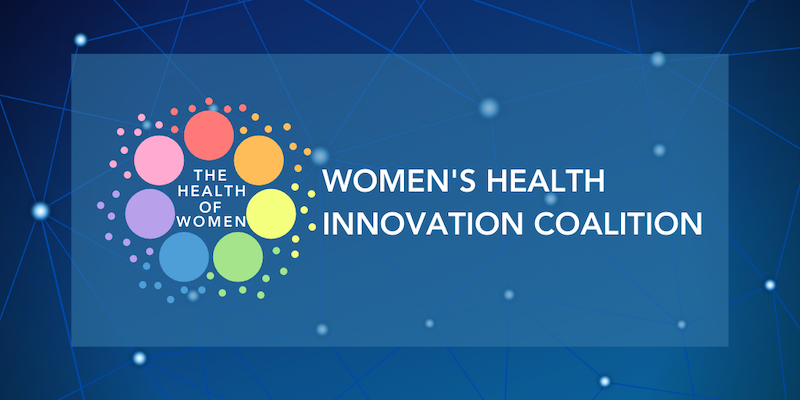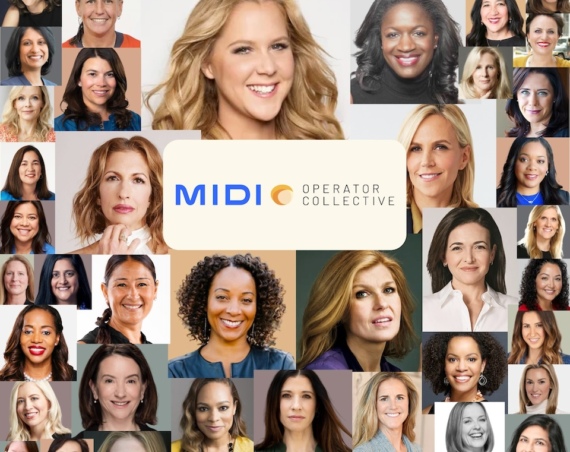
If you’re been following the developments in the femtech community as of late, you probably also heard about the formation of the Women’s Health Innovation Coalition, which we announced a couple of weeks ago.
As a partner of this initiative we thought it’s about time we share some details and what better way to do this than speaking to Springboard Enterprises‘ Kristen Comer, who brought innovators, investors, clinicians, analysts, and executives with the shared goal of advancing innovation in women’s health together to form the Women’s Health Innovation Coalition.

Kristen Comer is a Program Manager, Women’s Health for Springboard Enterprises. She has diverse experience in sales and account management within the pharmaceutical and medical device industry across a range of specialties including diabetes, cognitive deficiencies, and plastic and reconstructive surgery. Within Springboard Kristen aids in the execution of Springboard’s signature accelerator programs, focusing on the Tech and Health Innovation Hubs. She has a concentration on strategically growing and managing Springboard’s expert network, as well as leading their women’s health initiatives.
We spoke to her about the Women’s Health Innovation Coalition, its focus and plans and of course also asked her to share some information about Springboard Enterprises’ other programs in support of founders in the women’s health innovation space.
Hi Kristen! Thanks for making time for this. To start: What is the Women’s Health Innovation Coalition and why did Springboard Enterprises decide to initiate it? What are the goals of the group?
The Women’s Health Innovation Coalition brings together innovators, investors, clinicians, analysts, and executives with the shared goal of advancing innovation in women’s health. We take a holistic approach to women’s health—taking into consideration not only gynecological, reproductive, and sexual health but looking beyond that to encompass any other diseases and conditions that either solely, predominately, or differently impact women. Through this lens, we have developed a framework of seven sectors: autoimmune, bone health, oncology, gynecological & reproductive health, heart health, cognitive & brain health. As a result, our partners operate across these sectors and more.
Springboard Enterprises has been putting significant energy into the women’s health space over the past year. As part of this, we hosted a few in-person women’s health roundtables ranging from loose market landscape discussions to more tailored discussions about innovation and investments within certain sectors (e.g. reproductive health, heart health, etc). It was suggested that we create an online portal to serve as a collective voice in order to drive innovation, research, and investments in women’s health. We realized there are so many individuals and organizations passionate about advancing the space, so we sought to create a community and streamline all these amazing resources.
The new coalition unites a rather diverse group of organizations. What projects are planned? And how will they cooperate?
One thing that is particularly unique about this coalition is its holistic approach to women’s health. Traditionally, women’s health has operated through a monolithic view making the health of women rather fragmented. Through our previous roundtables, we see that there is tremendous value in the cross-pollination of these different specialties and expertise. The goal for the coalition is two-pronged: we seek to raise visibility of the partners, their solutions, and resources for women’s health, while additionally continuing these roundtables virtually to foster discussions and address matters within the space.
It’s been a few weeks since the Women’s Health Innovation Coalition was announced. What has been the feedback so far?
It has been overwhelmingly positive! Within the first week, our web submissions for those interesting in partnering doubled. I have also gotten feedback from various investors and entrepreneurs that this is well needed to propel the women’s health space forward. By partnering with such a diverse group, not only is a collective voice stronger but by unifying so many important aspects (such as investment, policy, research, regulatory, and more) will enable us to build momentum and bring much-needed change to a formerly stagnant area. Those that are in the space are extremely passionate about what they do and I am excited to see what is in store for the future of women’s health.
Can organizations and companies still join the coalition? And if so, what are the prerequisites and what is the process?
Yes, we are still growing and expanding the coalition. The easiest way for those to express interest in becoming a coalition partner is through the “Partner with Us” web submission form on our website. I screen the submissions and reach out to set up an intro call where I learn more about the organization and their goals. The coalition brings diverse perspectives, so we are open to a variety of backgrounds but look to those already operating among the seven sector framework or have a focus on health innovation, investment, and research.
Besides running the Women’s Health Innovation Coalition, Springboard runs a number of other programs in support of female founders and entrepreneurs in the women’s health space. Can you share an overview?
Yes, of course! Springboard runs accelerator programs for women-led business and women entrepreneurs operating in the technology and life science space. This year we are running two Health Innovation Hub tracks—the first track is in Life Sciences, such as therapeutics, diagnostics, and medical devices and the second track will be for Digital Health solutions. Companies seeking growth funding, connections to experts, and strategic partners for development and expansion are encouraged to apply. The selected Hub companies take part in a 3-day in-person bootcamp, followed by a virtual advisory period. These personal advisory teams are tasked with providing meaningful impact on the company’s next stage of growth.
This year we have a special focus on women’s health innovation and are currently in the middle of our Life Science track. We have converted this program to a virtual format due to COVID, which has enabled us to engage even more of our expert network throughout the program! Applications for the Digital Health track will be opening in Q3.



